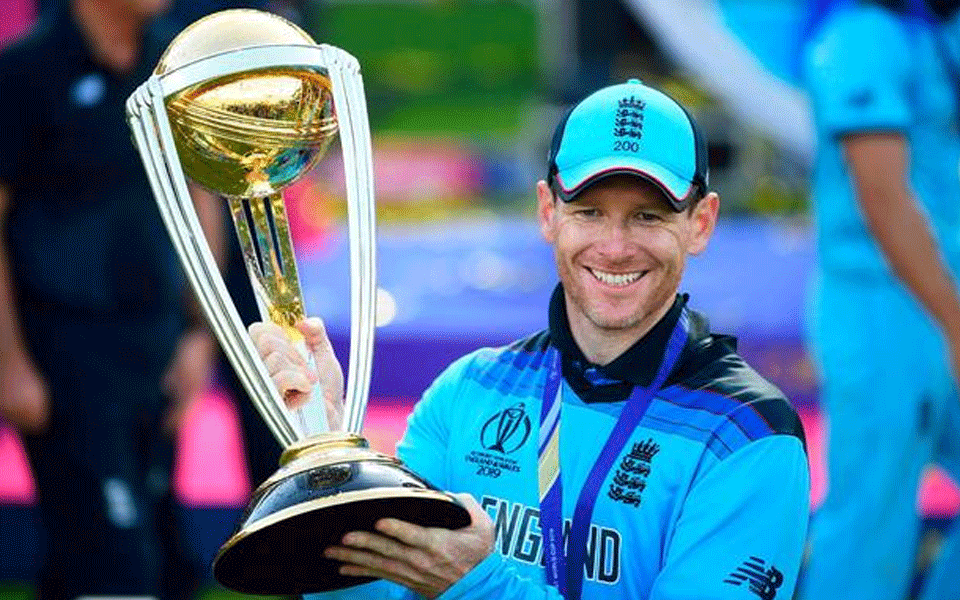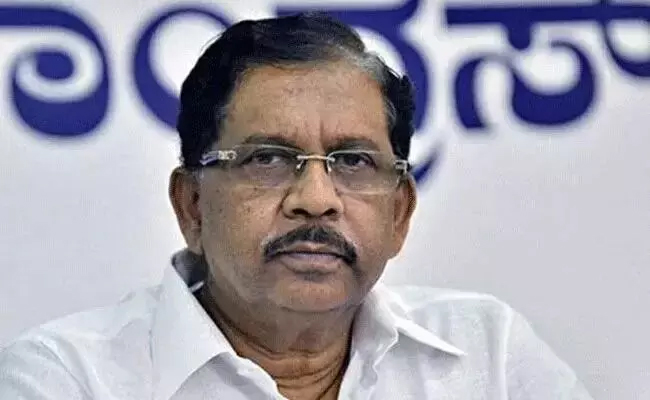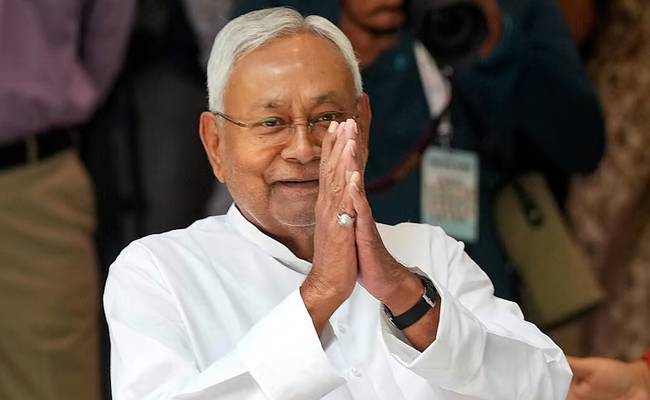England won their maiden World Cup title with a win over New Zealand in the final at Lord's on Sunday. The World Cup-winning England team comprises players belonging to Pakistan, South Africa and Barbados. Captain Eoin Morgan, who is from Ireland, believes that both Irish luck and Allah were with the team during their nail-biting final against New Zealand. "I spoke to Adil (England leg-spinner Adil Rashid), he said Allah was definitely with us," Dublin-born Morgan said, when asked if England had enjoyed the famed luck of the Irish.
"It actually epitomises our team, quite diverse backgrounds and cultures," he added.
Morgan hopes his side's "incredible journey" to World Cup glory will inspire a new generation of fans in the sport's birthplace.
There have long been concerns about declining player numbers in English cricket, with the sport hidden behind a television paywall in Britain since England's iconic 2005 Ashes series triumph.
But Sunday's match at Lord's -- the first of the 12 World Cup finals to end in a tie and to be settled by a Super Over contest -- was on free-to-air television.
"I certainly hope participation levels go up or continue to rise," said Morgan, who has overseen England's climb from the depths of a miserable first-round exit at the 2015 World Cup.
Morgan, asked if the final would have resonated far beyond cricket's core audience, replied: "I hope so. Obviously today is a big day of sport with Wimbledon and the Silverstone GP going on.
"But with Sunday evening, people normally settle in for a bit of (naturalist) David Attenborough or some random film that's on, so I hope they were tuned into the cricket."
England, set 242 to win, were dismissed for 241, with Ben Stokes stranded on 84 not out after Mark Wood was run out off the last ball of regulation play.
They then made 15 in their additional Super Over, bowled by Trent Boult, before New Zealand matched that in their own Super Over, bowled by Jofra Archer.
But with Martin Guptill run out off the last ball of the match going for the winning run, England triumphed on boundary count during the match -- 26 to 17.
England had a moment of astonishing good fortune with a bonus four runs during their main innings when a Guptill throw deflected off the bat of Stokes, who was diving to make his ground.
courtesy: ndtv.com
Let the Truth be known. If you read VB and like VB, please be a VB Supporter and Help us deliver the Truth to one and all.
Colombo (AP): A US submarine sank an Iranian warship off the coast of Sri Lanka, and Sri Lanka's navy said Wednesday it recovered 87 bodies and rescued 32 people.
The Iranian vessel that was sunk in the Indian Ocean was the Islamic Republic's “prize ship,” US Defence Secretary Pete Hegseth said at a Pentagon news briefing. Hegseth said it was the first sinking of an enemy ship with a torpedo by the US since World War II.
Sri Lanka's Foreign Minister Vijitha Herath told Parliament that its navy received information that the IRIS Dena, with 180 people on board, was in distress and sinking. The island nation sent ships and air force planes on a rescue mission, he said.
Navy spokesman Commander Buddhika Sampath said by the time navy ships reached the location, there was no sign of the ship and “there were only some oil patches and life rafts. We found people floating on the water.”
He said the 32 people rescued were admitted to a hospital in the seaside town of Galle on the Sri Lanka's southern coast. The bodies recovered were being brought to land, he said.
Dr Anil Jasinghe, a top health ministry official, said one of those rescued is in critical condition, seven are receiving emergency treatment and others are being treated for minor injuries.
The IRIS Dena — one of Iran's newest warships — is a Moudge-class frigate that patrols in deep water for the Iranian navy. It is armed with heavy guns, surface-to-air missiles, anti-ship missiles and torpedoes. It also carries one helicopter.
The frigate was the centerpiece of a two-ship international tour in 2023 that included port calls in countries including South Africa and Brazil. It was accompanied by the support ship IRIS Makran, a converted oil tanker.
The US Treasury Department included both ships on a sanctions designation in February 2023 along with eight executives of an Iranian drone manufacturer that supplied the weapons to Russia for use against civilian targets in Ukraine.
At least 17 Iranian naval vessels have been sunk during the ongoing war, said US Adm Brad Cooper, who leads the American military's Central Command.
“We are also sinking the Iranian navy — the entire navy,” he said in a video message.





